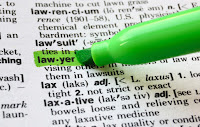Preparing the Case for Mediation

In the last month, I have provided several ways to think about the "who" of mediation. Most recently, I have examined the role of lawyers in mediation. This post closes out that discussion. So far we have considered the lawyer's role in counseling clients about the mediation option, preparing clients for mediation, and now preparing the case for mediation. That last step involves a strategic planning process involving the client. The lawyer will likely: Discuss the costs, risks and benefits of not reaching a settlement. Discuss the best result each party can hope for in litigation. Discuss the worst result that could happen in litigation. Ensure that the client knows the facts and issues of the case. Examine the legal and factual strengths and weakness of each party’s case. Explore the client’s position, goals, and interests. Establish a list of priorities, possible trades, and rapport-building “throw away” ...



